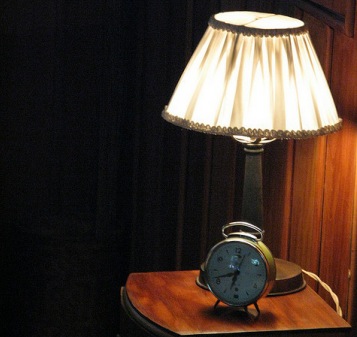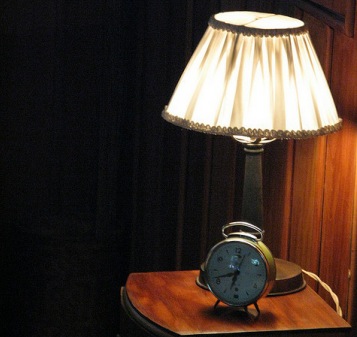 Photo: Anders AlexanderJust in case you need another reason to turn out the lights: It turns out they mess with your head. A new study has found that spending your evenings in a lit room delays and suppresses the brain’s production of melatonin, the hormone that (among other things) regulates your biological clock. Limiting your use of artificial lighting doesn’t just save energy; it can also improve your health.
Photo: Anders AlexanderJust in case you need another reason to turn out the lights: It turns out they mess with your head. A new study has found that spending your evenings in a lit room delays and suppresses the brain’s production of melatonin, the hormone that (among other things) regulates your biological clock. Limiting your use of artificial lighting doesn’t just save energy; it can also improve your health.
A little light is all right: Here’s why Abe Lincoln was smarter than you: He slept better. Participants who were exposed to dim light in the evenings — equivalent to lighting a room with candles instead of bulbs — didn’t have a problem with melatonin synthesis.
College students and third-shifters beware: The effects were even more pronounced when people were exposed to artificial light while they were trying to avoid sleeping. (There weren’t very many participants in that trial, so the results might not be rock-solid — but search your feelings. You know it to be true.)
This isn’t just about sleep: Crappy melatonin levels may have health implications beyond a good night’s sleep. The researchers say that the hormone can also have an effect on “the body’s ability to regulate body temperature, blood pressure and glucose levels.” One recent study found a correlation between melatonin-suppressing nighttime illumination and a higher risk of certain cancers. Melatonin has also been linked to type 2 diabetes risk. Man, how many of our modern ills might come down to modern lighting? Damn you, Edison!
Lights out is a win-win: Umbra and the Mythbusters have both weighed in on the canard that it takes more energy to turn lights off than to keep them on. Switching off is always better from an environmental perspective. But the health benefits are a nice bonus — not to mention the fact that short-term, personal incentives might help convince less energy-conscious people to go dark.



